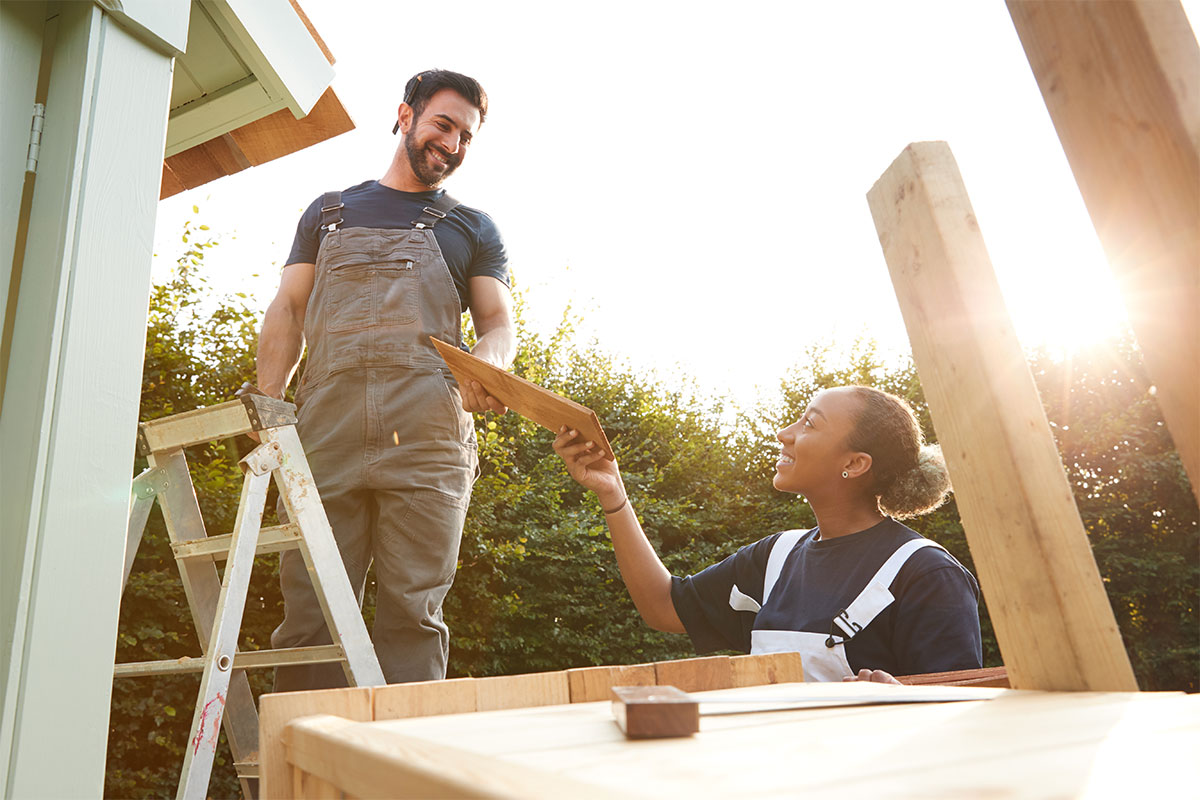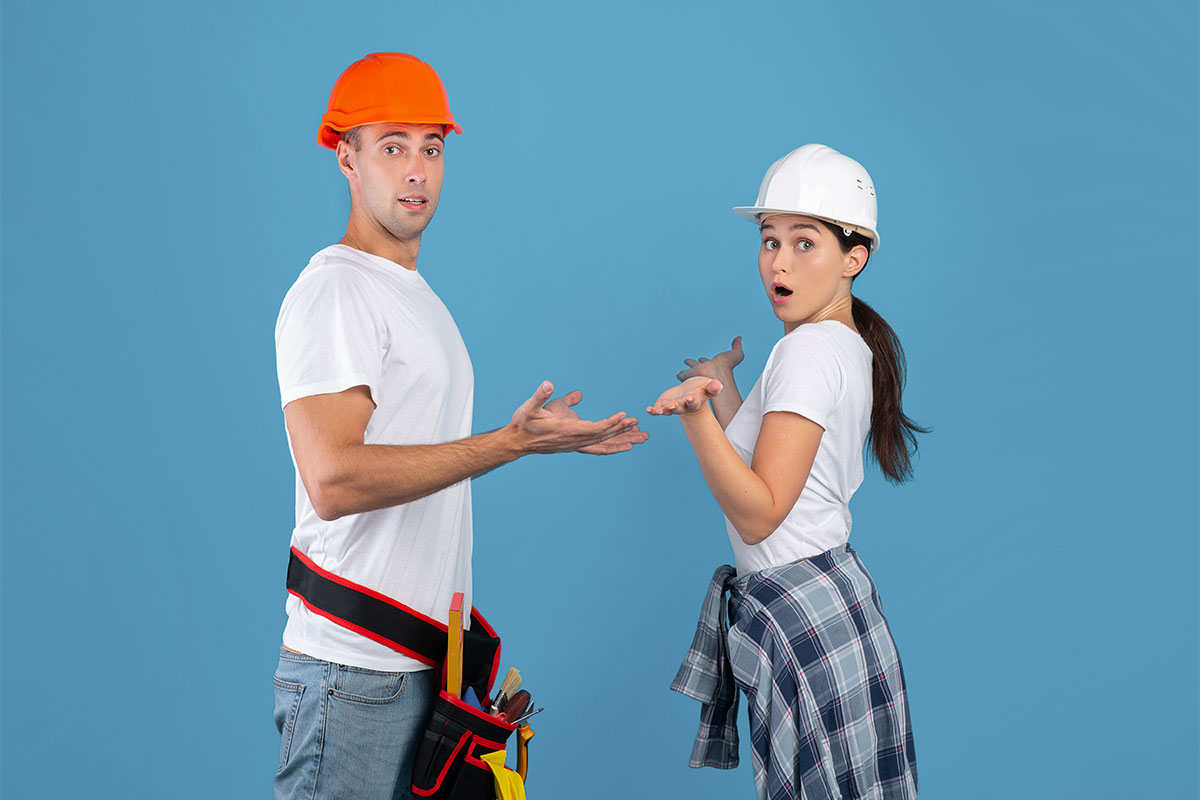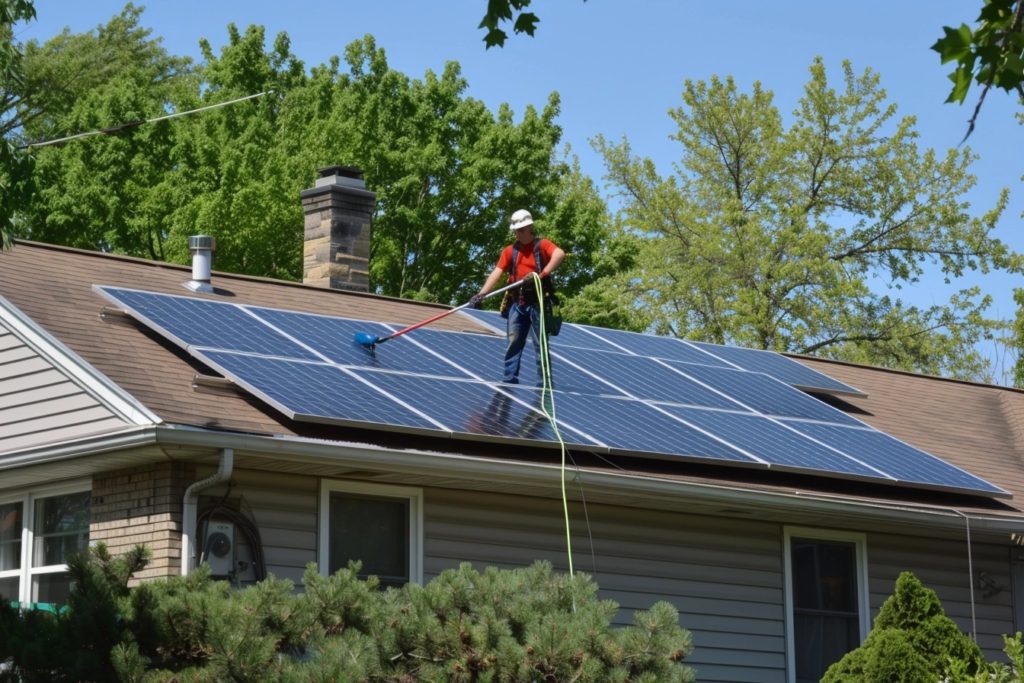You’ve finally decided to make the switch to solar panels at home. But now you’ve come to the part where you’re weighing all of your options. A few of your neighbors, co-workers, and friends who went with LGCY Power for their solar conversion couldn’t be happier, saving significant money on their power bills.
But you’re also considering DIY solar panel installation after watching a few YouTube videos. You probably think the DIY route will save you money (it won’t, as we documented here) And you’ve even gone as far as to Google, “Can you install solar panels yourself?”
Now would be a good time to STOP and strongly reconsider. The fact is that trying to install solar panels yourself can (and probably will!) cause serious damage to your roof and even your home – not to mention the fact that it’s dangerous for non-professionals.
It’s not that solar panels cause damage to your roof – it’s when a homeowner or non-professional tries to install them that ROOF problems multiply (significantly increase).
Remember that most solar panels are affixed to a roof using a complex but battle-tested system involving bolts, straps, and nails. Although before you take out your hammer, screwdriver, and drill, weekend warriors should hit pause.
Whew, we may have saved you from a terrible decision!
So why is installing solar panels yourself such a bad idea?
Ask any roofing contractor and they’ll shake their head in dismay at the mere idea of a homeowner getting up on their own roof and installing solar panels – or doing any major work to such a crucial facet of your structure.
According to roofing and construction professionals, there are four commons reasons why DIY solar installs cause havoc:
- Leaks
- Less thermal protection
- Installing on an older, damaged, or wrong type of roof
- Possibly void the roof warranty
Let’s go over each of these briefly:
Leaks
When you install the new solar panels to your roof, you’ll most likely do so with a rack system that’s affixed with nails and lag bolts. Those nails or bolts pierce the roof shingles, membrane, and wood layer, driving them into the subroof or rafters below.
(If you find yourself wondering what a membrane or subroof is, you definitely should abandon your DIY ambitions and call LGCY Power right now!)
Obviously, that leaves a hole right in your roof – which is not an issue when you use a professional installer. Pros use a system of high-tech flashing and sealant or tar to plug and waterproof the holes.
Lastly, the pro installer will meticulously test the roof to make sure there are no weak spots, gaps in waterproofing, or issues.
The sound of holes in your roof may sound precarious, but when handled by licensed, professional installers like those who team up with LGCY Power, the roof’s waterproofing and structural integrity are not compromised at all.
With DIY solar panel installation, it’s very common that homeowners find a nasty, very wet, and extremely expensive surprise the first time it rains. The cost of any potential roof leak or water damage to your home is exponentially higher than the cost of doing it right the first time with a professional installer!
Less thermal protection
Without solar panels, direct sunlight barrages your roof all day, every day, heating up the attic or space below. But once panels are in place, it absorbs most of that heat, creating a cooling effect on the roof and structure below. According to a prominent study published in Phys.org, solar panels can reduce a home’s internal temperatures by up to 5 degrees in the summer, making solar panels an even bigger energy efficiency winner.
However, when homeowners try to install panels themselves, they’ll likely fail to optimize that cooling potential.
Installing on an older, damaged, or wrong type of roof
Certain types of roof materials are more vulnerable to issues with leaking, cracking, and other damage. If your roof consists of wood shingles (also called ‘shake’), or clay, slate, or terracotta tiles, you won’t want to install solar panels into those surfaces.
Instead, pro installers know where to replace or augment specific areas of your roof, so they are good connecting points for solar panels.
Another common problem with DIY solar panel installation is when homeowners try to add a new solar system to an older roof. Over time, shingles, membrane, flashing, etc. all deteriorate, creating cracks, soft spots, or dry rot. Installing new solar panels to those roofs can expose and accelerate those problems – which means more leaks and potential water damage.
Instead, a pro installer will carefully inspect your roof before installation, fixing or replacing problem areas to ensure the roof is in optimal condition to house solar panels. When you turn to LGCY Power for your solar needs, our industry-leading installers will also check your roof for slope, exposure to sunlight, the building height, potential wind, and your roof’s load-carrying capacity and framing.
Unless a homeowner happens to be a licensed roofing contractor, those are all things they’ll miss!
Other problems with DIY solar installation
We’ve talked a lot about the roof, attic, and rafters, but haven’t even touched on the home’s electrical system, which must be correctly wired to the solar panel system. Incorrect wiring, the use of the wrong materials, and other issues cannot only reduce your new solar system’s efficiency but can be flat-out dangerous.
Contact LGCY Power for more information about installing a residential solar system the right way, saving you money and also avoiding potential problems from DIY installation!
There’s no doubt that solar power at home will save you significantly on your power bills, and the cost savings of going solar is attracting more people than ever to make the change. However, a small number of homeowners attempt to install the solar panels themselves instead of hiring a licensed, experienced professional firm like LGCY Power.
Why would someone choose to DIY their solar panel installation instead of hiring the right pro?
The Perception of Cost Savings
The perception of cost savings is the main reason to undertake DIY solar panel installation. According to a Pew Research Center survey about solar power at home, 96% of people who were interested in solar thought it would save them money on their electric bills, which was by far the most prevalent reason.
But will DIY home solar panel installation really add up to significant savings at the end of the day? Or does the potential risk and opportunity costs actually make it a more expensive option in many cases?
First off, let’s address how much money you THINK you may save if you opt for the DIY solar option. According to market data by the National Renewable Energy Laboratory, the costs for design, installation, and labor only contribute about 10% of the final bill.
For penny-pinching, coupon-clipping, frugal homeowners who are considering DIY solar panel installation; at best, you’ll potentially save only about 10% of the total cost!
Sure, you can head over to Home Depot, Costco, or go online and easily shop for a home solar kit. At that point, it may seem like you’re saving a couple of bucks on solar. However, the results will probably be as bad as if you tried to order a DIY swimming pool in a box and expected it to last twenty or thirty years.
An established and reputable firm like LGCY Power offers state-of-the-art equipment and solar panels that typically aren’t available to the general public.
Even if it was possible for you to buy these parts and materials on your own (it isn’t), you’d be shocked at how much you’d have to pay as an individual, not a firm doing business in volume.
DIY Home Solar Panel Kits
DIY home solar panel installation kits that are available to the average person through retail stores not only have a larger profit margin, but offer panels, materials, and equipment that are of far lesser quality.
If you do manage to properly install your new (cheap) DIY solar panels and connect the system successfully (which the vast majority of homeowners cannot and do not), they certainly will yield you less power and therefore little savings.
Remember that you’re buying solar panels not just to install them but to use them. So, installing bad panels that don’t work very well just to save a little on up-front costs is like stepping over a dollar to save a penny. But when installation is handled by the pros, you can feel confident that it will save you an exponential amount of money in the long run.
DIY Home Installers Miss Out on Tax Incentives and Credits
Saving the biggest cost benefit for last, DIYers frequently miss out on the tax incentives and credits that are available for solar. Solar firms like LGCY Power make it their business to know every credit, incentive, rebate, and new tax code that deals with solar for homeowners.
In fact, the federal solar tax credit is 26% until 2023, which basically gives you a 26% discount on your solar system’s value.
Update: In August 2022, the solar tax credit was increased to 30% and extended through 2032.
But there’s no way the average consumer who undertakes DIY solar panel installation has knowledge of these tax savings, nor do they know how to fill out the paperwork to apply and access them.
Even if you did have a whole lot of free time and energy to go through that learning curve, in some states, these tax incentives aren’t available to the homeowner unless they’ve used a licensed contractor to install their solar panels and connect their system.
If you’re serious about saving with solar at home and want to make sure you do it the right way, contact LGCY Power today!






